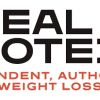Best Ways to Monitor Heart Disease Risk at Home: Essential Tools and Techniques
- 1. Why It's Important to Monitor Heart Disease Risk at Home
- 2. Top Methods for Monitoring Heart Health at Home
- 3. The Best Devices to Help You Track Heart Disease Risk
- 4. Real-Life Example: How Monitoring Heart Risk Helped Me Stay Healthy
- 5. Conclusion: Take Control of Your Heart Health Today
1. Why It's Important to Monitor Heart Disease Risk at Home
Heart disease remains one of the leading causes of death globally, which is why staying ahead of potential risk factors is crucial for long-term health. Monitoring your heart health at home can provide you with valuable insights into your current condition, making it easier to make adjustments to your lifestyle and seek medical help when necessary. By keeping track of key heart disease indicators such as blood pressure, cholesterol, and heart rate, you empower yourself to take preventative measures before serious complications arise.
Regular home monitoring allows you to stay informed about your heart's status and makes it easier to detect any changes over time. The earlier you spot potential issues, the sooner you can address them with the help of healthcare professionals. With the right tools and knowledge, monitoring heart disease risk at home is easier than ever.

2. Top Methods for Monitoring Heart Health at Home
There are several effective methods you can use at home to track your heart health. Some of the most common techniques for monitoring heart disease risk include:
- Measuring Blood Pressure: High blood pressure is a major risk factor for heart disease. Monitoring your blood pressure regularly at home with an affordable blood pressure cuff can help detect high levels early. Normal blood pressure is generally considered below 120/80 mm Hg.
- Tracking Heart Rate: Monitoring your heart rate gives you insight into your heart's performance. You can measure your resting heart rate to determine if it's within a healthy range. A typical resting heart rate is between 60 and 100 beats per minute.
- Cholesterol Testing: Cholesterol levels, including LDL (bad) and HDL (good) cholesterol, play a key role in heart disease risk. Some at-home kits allow you to test cholesterol levels to help you monitor your lipid profile.
- Body Weight and Waist Circumference: Obesity and abdominal fat are linked to increased heart disease risk. Regularly tracking your weight and waist size can provide insights into your cardiovascular health.
3. The Best Devices to Help You Track Heart Disease Risk
There are numerous tools available that can help you monitor your heart disease risk from the comfort of your home. Some of the best devices for heart health monitoring include:
- Omron Blood Pressure Monitor: Known for its accuracy and ease of use, the Omron Blood Pressure Monitor helps you track your blood pressure over time, which is essential for detecting hypertension early.
- Withings Body+ Smart Scale: This smart scale not only measures weight but also tracks body composition, including fat mass and muscle mass, which can help you manage your risk factors related to obesity.
- KardiaMobile EKG Monitor: A portable, FDA-approved device that lets you record your electrocardiogram (EKG) at home. It can help detect irregular heart rhythms, such as atrial fibrillation, a major cause of stroke.
- Fitbit or Apple Watch: Wearable fitness trackers like the Fitbit or Apple Watch offer heart rate tracking, as well as monitoring of physical activity levels, which can contribute to improving heart health.
4. Real-Life Example: How Monitoring Heart Risk Helped Me Stay Healthy
After experiencing occasional dizziness, I decided to monitor my heart health at home using a blood pressure cuff and heart rate monitor. I quickly realized that my blood pressure was consistently higher than normal, prompting me to make lifestyle changes. I adopted a healthier diet, increased my physical activity, and began tracking my cholesterol levels at home with a cholesterol testing kit. Over time, I noticed improvements in my readings, and I was able to reduce my risk of heart disease significantly.
This experience underscored the importance of regularly monitoring heart disease risk at home. By having access to easy-to-use devices and tracking my health indicators, I was able to take control of my cardiovascular health before any serious conditions developed. My story is just one example of how empowering yourself with information can have a major impact on your well-being.
Atlanta Heart Specialists
atlanta heart specialists
4375 Johns Creek Pkwy #350, Suwanee, GA 30024, USA

5. Conclusion: Take Control of Your Heart Health Today
Monitoring your heart disease risk at home is one of the best ways to stay on top of your cardiovascular health. By using simple and accessible tools like blood pressure monitors, heart rate trackers, and cholesterol testing kits, you can get a clear picture of your heart’s health and make informed decisions about your lifestyle. Early detection and proactive management are key to reducing the risk of heart disease and improving your long-term health.
If you're ready to take control of your heart health, start by exploring the best devices available today. Visit Digital Forums for expert recommendations on the most effective heart health monitoring tools to help you stay healthy and informed.





















Deborah Heart and Lung Center
deborah heart and lung center
200 Trenton Rd, Browns Mills, NJ 08015, USA